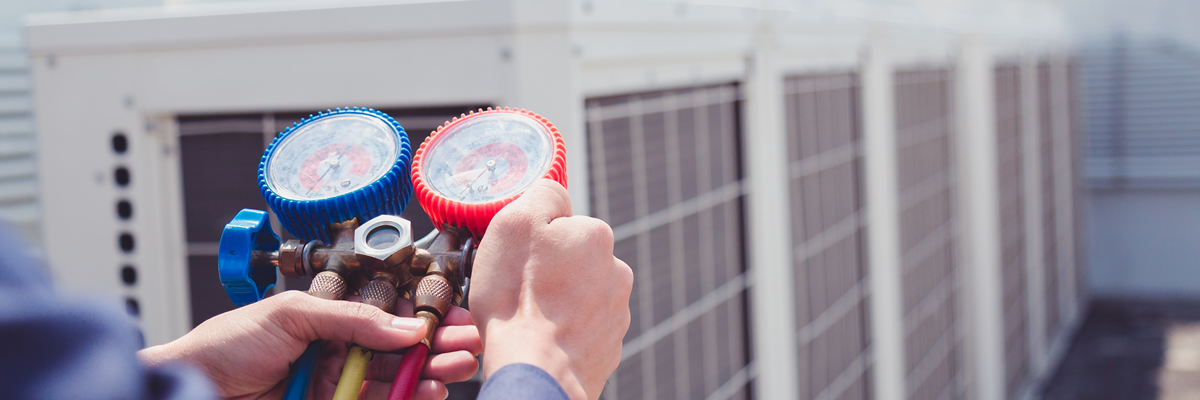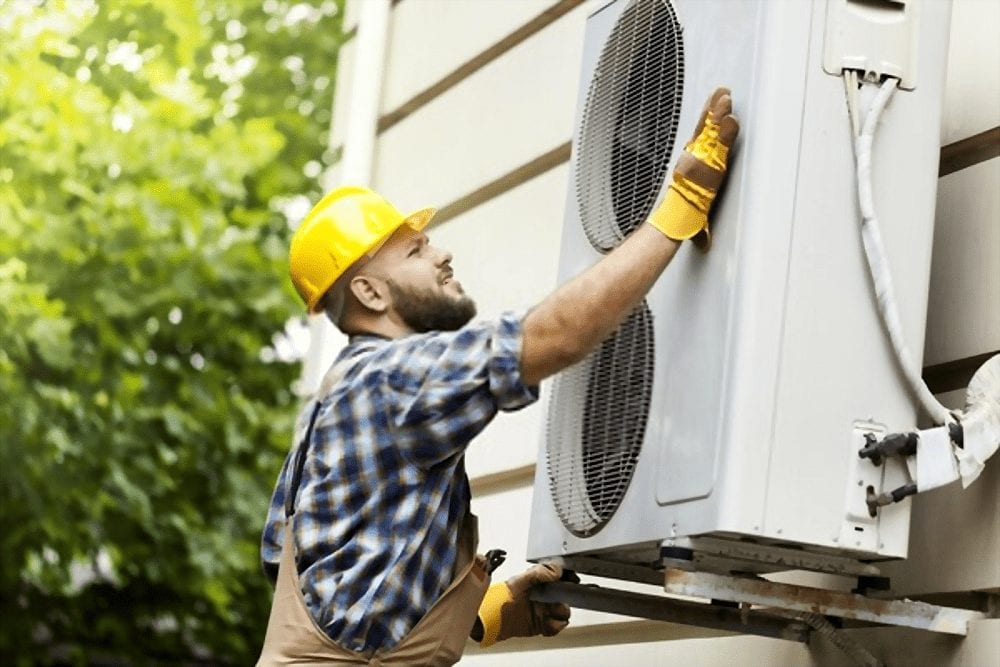Seasonal Reasons for heat pump installation ooltewah tn
Seasonal Reasons for heat pump installation ooltewah tn
Blog Article
Picking In Between a Heat Pump and Furnace: Trick Considerations for Your HVAC Needs
When examining home heating options for a/c needs, the choice between a heatpump and a heating system can be intricate. Each system provides unique benefits customized to specific climates and energy effectiveness objectives. Understanding these differences is important for making an enlightened selection. Trick factors such as installation costs and environmental impact additionally complicate the choice procedure. Which choice absolutely straightens with one's convenience and sustainability choices? The complying with sections will check out these factors to consider carefully.
Recognizing Warmth Pumps: Just How They Function and Their Benefits
While lots of home owners think about various heating alternatives, understanding just how heatpump feature and their benefits can considerably affect their decision. Heatpump run by transferring warm instead of producing it. In the wintertime, they extract warmth from the outside air or ground and move it inside your home, while in the summer, they reverse this procedure, cooling the home by getting rid of warmth outside. This twin functionality makes them versatile for year-round environment control.One of the key benefits of heatpump is their power efficiency. They utilize substantially less electricity contrasted to typical heater, possibly causing reduced energy expenses (ductless mini splits). Furthermore, warmth pumps have a smaller sized carbon impact, making them an environmentally friendly option. They additionally call for less upkeep than standard systems, adding to long-lasting price financial savings. Generally, recognizing the auto mechanics and advantages of warm pumps can aid home owners make educated decisions regarding their heating and cooling down needs
Checking Out Heating Systems: Kinds, Operation, and Benefits
Heaters come in numerous kinds, consisting of gas, electric, and oil designs, each with unique functional devices. Recognizing these distinctions is necessary, as they affect performance and home heating performance. In addition, heating systems offer numerous advantages, such as consistent warmth result and integrity in chillier climates.
Types of Heaters
Home heating systems can vary significantly in design and procedure, with heaters being a prominent choice amongst house owners. There are a number of sorts of heaters, each using different gas sources and modern technologies. Gas furnaces prevail, leveraging all-natural gas to create heat successfully. Electric heating systems, on the other hand, make use of electric resistance to generate heat, typically favored for their simple setup. Oil heating systems, while much less typical, are efficient in locations with restricted gas access (heat pump installation ooltewah tn). Furthermore, condensing heating systems optimize power performance by recycling and recording exhaust gases. Each type operates through a system of heat exchangers and ductwork to distribute cozy air throughout a home. Recognizing the distinctions between these heating system kinds is necessary for informed cooling and heating decisions
Benefits of Heaters
For property owners looking for reliable heat throughout cold months, the advantages of heaters are significant. Heating systems give regular heating, guaranteeing even temperature levels throughout the home. They are especially reliable in extreme cold, often outmatching heatpump in cold conditions. Various types, consisting of gas, electrical, and oil heaters, supply versatility to fulfill diverse demands and preferences.Furnaces likewise have a tendency to have reduced initial setup expenses compared to warmth pumps, making them a more available choice for lots of. Their durable style adds to a much longer life-span, with many units lasting over 15 years with proper maintenance. Additionally, modern heating systems are usually equipped with innovative modern technology for boosted performance, which can bring about decreased energy bills. Overall, heaters remain a reliable choice for reliable home heating.

Energy Efficiency: Contrasting Heat Pumps and Furnaces
When contrasting energy efficiency in between warmth pumps and heating systems, the Seasonal Energy Performance Ratio (SEER) plays a necessary role in establishing performance. Furthermore, an operational cost evaluation reveals the long-lasting economic ramifications of each system. Comprehending these factors can assist home owners in making informed decisions concerning their home heating solutions.
Seasonal Energy Efficiency Proportion
Energy effectiveness plays an essential role in the decision-making procedure between warm pumps and heating systems, specifically when considering the Seasonal Energy Efficiency Ratio (SEER) This statistics procedures the cooling performance of heatpump over an entire cooling season, offering a standardized way to review efficiency. Greater SEER ratings suggest better energy performance, translating to lower energy usage and minimized energy expenses. On the other hand, heaters are normally examined using the Yearly Fuel Use Efficiency (AFUE) ranking, which mirrors heating performance. When comparing these two systems, house owners should focus on SEER ratings for heatpump, as they directly influence total energy savings and ecological sustainability. A thorough understanding of SEER can notably influence the lasting contentment and cost-effectiveness of the chosen HVAC solution.
Functional Expense Analysis
Understanding the operational prices related to heatpump and site here furnaces is vital for home owners examining their options. Heatpump generally supply higher power efficiency, transforming electrical power into heat with marginal waste. This causes lower regular monthly energy expenses, especially in modest environments. Conversely, traditional heaters, particularly gas versions, may have lower in advance prices yet can sustain greater operational expenditures over time because of sustain rates and performance ratings.Moreover, warmth pumps can work as both heating and cooling down systems, potentially decreasing the need for separate HVAC systems. While preliminary investments for heat pumps might be greater, their long-lasting cost savings in power effectiveness can make them a more cost-efficient option for lots of households. Cautious evaluation of local power rates is necessary to figure out the finest alternative.
Setup Expenses: What to Expect for every Furnace
Installment costs for heater can differ considerably in between warm pumps and heaters, influencing property owners' choices. Heatpump generally have greater ahead of time installment prices, usually varying from $3,500 to $8,000, relying on the device size and intricacy of setup. This consists of the exterior system, indoor handling system, and essential ductwork modifications. Conversely, furnaces often tend to have reduced preliminary prices, balancing between $2,500 and $6,000, which can be appealing for budget-conscious homeowners. Setup costs can enhance if extensive ductwork is required.Moreover, the selection of fuel kind for heating systems-- natural gas, propane, or electrical-- can additionally influence installment prices. While heat pumps offer power efficiency, their first investment may hinder some buyers. Ultimately, reviewing installation expenses together with long-lasting savings and performance will certainly help property owners in making informed choices about their home heating systems.
Environment Factors To Consider: Which System Performs Much Better in Your Area
Just how do environment problems affect the performance of furnace? The performance of heat pumps and heaters can vary substantially depending upon the local environment. In modest environments, heatpump succeed by effectively moving warm from the outdoors air, making them an energy-saving alternative. Their efficiency diminishes in incredibly chilly temperature levels, where they might struggle to remove sufficient warmth. On the other hand, heating systems, specifically gas models, supply consistent and reliable warmth despite outside problems, making them more suitable in colder regions.In areas that experience milder winter seasons, heatpump can run properly year-round, supplying both cooling and heating. On the other hand, regions with extreme wintertimes usually take advantage of the robustness of heaters. Ultimately, recognizing the neighborhood climate is vital when making a decision between a heatpump and a heater, as it straight affects their operational performance and total efficiency.
Maintenance Requirements: Long-Term Take Care Of Warmth Pumps vs. Furnaces
While both heatpump and heaters call for routine upkeep to assure peak efficiency, their particular needs and treatment routines vary considerably. Furnaces generally need less regular attention, with yearly inspections being adequate to examine for gas leaks, tidy filters, and assess total performance. Their easier design often enables uncomplicated repairs.In comparison, heatpump demand semiannual maintenance as a result of their double duty in heating and air conditioning. This consists of cleaning coils, examining refrigerant levels, and making certain that both the exterior and indoor units function at their finest. In addition, heatpump upkeep commonly includes even more intricate components, making specialist maintenance essential.Neglecting maintenance can lead to lessened efficiency and enhanced power costs for both systems. Ultimately, property owners ought to consider these long-term care requirements when selecting in between a warmth pump and a heater, as aggressive upkeep can expand the lifespan and efficiency of either system significantly.
Environmental Influence: Choosing a Sustainable Heating Choice
The environmental effect of heater is a vital examination for home owners seeking sustainable alternatives. Heatpump are typically a lot more energy-efficient than typical furnaces, as they transfer heat rather than produce it, greatly decreasing carbon exhausts. By using renewable energy resources, such as geothermal or air-source heatpump, house owners can further minimize their eco-friendly footprint.On the other hand, gas heating systems send out greenhouse gases and add visit this website to air pollution, though they typically offer higher warmth output. Nevertheless, advancements in innovation have led to the growth of high-efficiency heaters that decrease emissions.Ultimately, choosing a home heating system entails weighing performance against ecological effect. House owners are urged to assess local energy resources and motivations for eco-friendly systems, ensuring a choice that straightens with both personal comfort and ecological obligation. The choice influences not just prompt convenience however also lasting sustainability and environmental health.
Regularly Asked Inquiries
For How Long Do Heat Pumps and Furnaces Usually Last?
The lifespan of warmth pumps usually ranges from 15 to twenty years, while heating systems can last between 15 to thirty years. Routine upkeep substantially impacts their durability and effectiveness in providing heating services.
Can I Use a Heatpump in Exceptionally Cold Climates?
Heatpump can operate in incredibly chilly climates, however their effectiveness decreases as temperature levels decrease. In such conditions, home extra heating resources might be needed to keep comfy indoor temperatures and guarantee peak efficiency.

What Is the Noise Degree of Warm Pumps Versus Furnaces?
The noise levels of heatpump and heaters differ substantially. Typically, heatpump operate more quietly than traditional heating systems, making them more suitable for those conscious sound, while heating systems may produce louder functional noises throughout home heating cycles.
Are Warmth Pumps Suitable for Both Heating & Cooling?
Heatpump are indeed ideal for both heating and air conditioning (heat pump replacement ooltewah tn). They work by transferring heat, offering reliable temperature level control year-round, making them a versatile choice for homeowners looking for an all-in-one a/c solution
What Size Heater Do I Required for My Home?
Determining the appropriate size heating unit for a home needs reviewing aspects such as square video footage, insulation quality, neighborhood environment, and the home's design. Consulting an expert can ensure a precise assessment and ideal convenience. Warm pumps usually provide greater power performance, transforming electrical power into warmth with minimal waste. In modest climates, warm pumps excel by effectively moving heat from the outdoors air, making them an energy-saving choice. On the other hand, heating systems, specifically gas models, supply trustworthy and regular heat regardless of outdoor conditions, making them preferable in cooler regions.In locations that experience milder wintertimes, warm pumps can run successfully year-round, providing both home heating and air conditioning. Warmth pumps are usually more energy-efficient than conventional heating systems, as they move warmth instead than produce it, significantly reducing carbon discharges. By utilizing sustainable energy sources, such as air-source or geothermal warmth pumps, house owners can better reduce their ecological footprint.On the other hand, all-natural gas heating systems release greenhouse gases and contribute to air pollution, though they often supply higher warm output.
Report this page